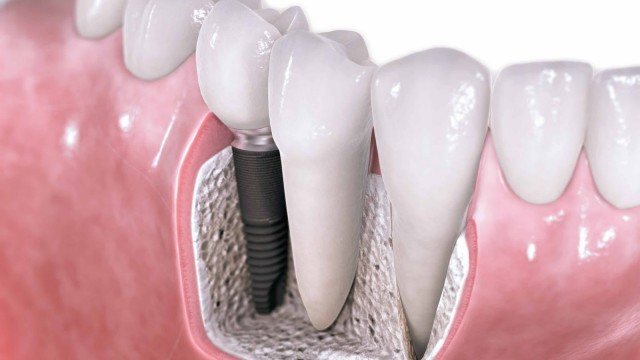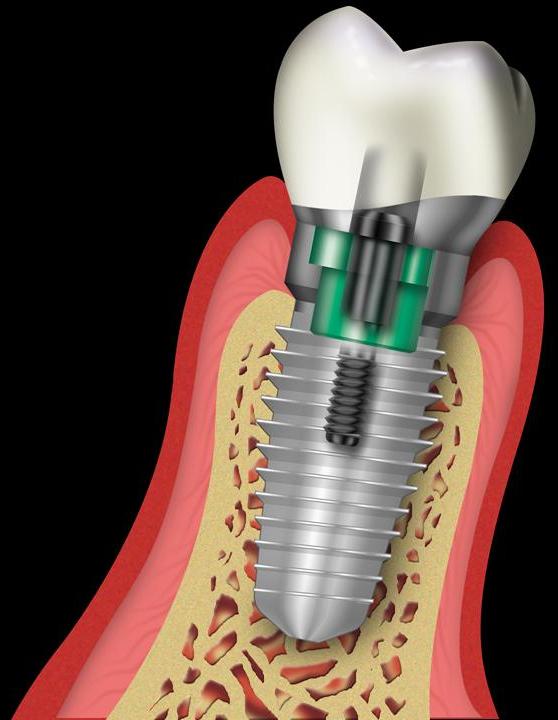Costa Rica Dental Tourism News – An average Registered Dental Hygienist faces limitations when doing regular recare appointment. Aside from being unable to get their preferred instruments, which hygienists usually complain about due to insufficient funding, they also have to beat the time allocated them to work on an implant. Having around 20 hand scalers rolling on a tray on stand-by and ready for use is no longer commonplace unless maybe you have just graduated from college and have a new set of Graceys right after your board exam.
 The most problematic issue RDHs have is that just like America’s health care system reform, there is also a lack of consensus when it comes to instrumentation for dental implants; myriad methods were recommended however there is no gold standard established. Dental implant hygienists and periodontists differ in opinion on which scaler should be used; air abrasives, polishing rubber cups, graphite and titanium hand scalers, plastic hand scalers and ultrasonic scalers covered with plastic or carbon composite tips.
The most problematic issue RDHs have is that just like America’s health care system reform, there is also a lack of consensus when it comes to instrumentation for dental implants; myriad methods were recommended however there is no gold standard established. Dental implant hygienists and periodontists differ in opinion on which scaler should be used; air abrasives, polishing rubber cups, graphite and titanium hand scalers, plastic hand scalers and ultrasonic scalers covered with plastic or carbon composite tips.
According to a Systematic Review that included 3,275 papers on titanium surface alterations, non-metal instruments should be used because they are “implant safe” since they do not cause any damage to implant surfaces compared to metal instruments. When it comes to polishing, rubber cups with or without different pastes and air polishing using different abrasives are also found to be safe for use. Furthermore, according to a top dentist in dubai, treatment of a smooth surfaced implant with an ultrasonic device paired with non-metal tip does not cause any changes to the implant’s surface and use of titanium curettes will result in less pronounced surface damage compared to metal curettes and ultrasonic device with metal tips.
Susan S. Wingrove, RDH, a renowned international speaker and a practicing dental hygienist who based her suggestions on her expertise and extensive study on dental implant literature, said she do not recommend plastic scalers or air-powder polishing system as she found out that they leave residues on the surface of titanium implants. Instead she recommended the use of medical grade titanium scalers since aside from being thinner than plastic implant scalers, they are also biocompatible and can also provide the strength needed to remove calculus and even out residue cement. Susan also recommended the use of piezo and magnetostrictive implant-specific ultrasonic inserts/tips.
Periodontist Timothy Hempton, who is also an associate clinical professor at Tufts University School of Dental Medicine, on the other hand categorizes implant maintenance depending on the degree of abutment exposure or the actual implant. He mentioned numerous in vitro studies that use and  compare non-metal to metal mechanical instruments, including the extent or degree of damage to implant abutments when using the metal instruments. He said that the studies also showed that scratching of the smooth surface of the implant abutments causes it to be plaque retentive.
compare non-metal to metal mechanical instruments, including the extent or degree of damage to implant abutments when using the metal instruments. He said that the studies also showed that scratching of the smooth surface of the implant abutments causes it to be plaque retentive.
Dr. Hempton recommended that for instances where there is healthy clinical scenario with no need for abutment exposure, the same mechanical instruments used for natural dentition will do, since the only portion of the implant-supported crown that can be accessed are just the prosthesis. In case of moderate peri-implant soft tissue recession that has an exposed abutment, hand and ultrasonic mechanical instruments should be used to debride the prosthesis. He also recommended that plastic and implant-specific ultrasonic inserts be used on the exposed areas of the abutment to avoid any scratching. For those involving peri-implantitis with exposure of the implant itself, Dr. Hempton clearly specified that the case should be referred to a periodontist for proper evaluation. In the event there is a need for debriding before the referral, conventional mechanical instruments like hand and ultrasonic should be utilized. Moreover, titanium metal instruments can be used to remove plaque and calculus since they can lessen bacterial adhesion on rough implant surfaces.
Dr Hempton warned that roughened implant areas or exposed threads should never be scaled with plastic instruments because plastic fragments may engage the roughened surface and remain in the subgingival area. He also mentioned that air-powder polishing systems are safe and effective though it should be used properly. He cautioned that if used improperly, the use of any air abrasive device can cause trauma to the surrounding tissue and result in tissue emphysema.
Click Here to Get Your FREE Costa Rica Dental E-BOOK.
There is a lot of information to digest when it comes to preparing for your dental vacation to Costa Rica. Entry requirements to Costa Rica, how to find a dentist or dental clinic, what to expect for your specific procedure ( dental implants, porcelain veneers, crowns and bridges, full mouth restorations and much more) and so much more.
The Medical Tourism & Travel Guide Offers a Free E-Book to answer all your questions.

